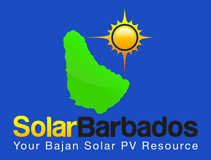
When the world entered a collective lockdown in March 2020 due to the coronavirus pandemic many were unsure of just how long it would last. Volatility and uncertainty gripped the financial markets and economies were destabilized, seemingly overnight. As businesses closed their doors and the public stayed indoors the demand for oil dried up and the price fell dramatically, causing fear among investors.
In the past, oil was the blood of civilization but now electricity is replacing it as the driving force of modern civilization. The single largest consumer of oil globally is the transportation sector which include trains, planes, ships, cars, trucks and buses. Almost all of that came to a halt during the pandemic lockdown. With the population staying at home and working from home, residential electricity usage increased. Devices such as AC, lights, computers and TVs were being used more during the day than if the household was at school or work.
Although the residential electrical demand increased during the lockdown period, overall demand fell due to the closure of large energy users such as factories, businesses, schools and hotels. Immediately after the lockdown was implemented, some countries saw a drop of about 25% in electricity demand which has since recovered to 10-15% lower than normal levels.
With that being said, utilities and other electricity producers are doing well relative to other businesses. Their end customers are people but they don’t need to interact with them directly to conduct business. A look at the stock market shows that many North American utility companies bounced back quickly after mid-March’s free fall. Utilities are in good shape to weather this financial storm because everyone needs electricity regardless of whether there is a pandemic or a recession taking place.
This is where renewable energy generation and solar power come into play. Utilities no longer have a monopoly on electricity generation; you can invest and own your own micro-utility to create a pandemic resistant source of passive income. A significant benefit of the current Barbados FIT program, is the reassurance of a fixed price for each unit of electricity you generate and sell. Businesses may close, salaries may be reduced and banks may drop interest rates but the FIT rates stay stable and consistent.
During the strictest of lockdown measures, it was not possible for a solar project to be installed. With the easing of restrictions however, companies are ramping back up to put solar panels to work in the sun. Once your system is installed and generating electricity, you are operating your own utility which is an essential service. In the event of another island wide lockdown, your solar PV system operation (and income) is uninterrupted.
Investing in a solar photovoltaic system in Barbados is prudent under ordinary conditions as it provides a healthy return, creates local jobs and is good for the environment. In a COVID-19 pandemic and economic recession situation, the added benefit is securing an extra income source. With the reopening of borders and the very real threat of a second wave at the end of 2020, we all need to prepare and be ready. If you are considering investing in a solar project as part of those plans, here is a helpful resource for obtaining solar quotes.
